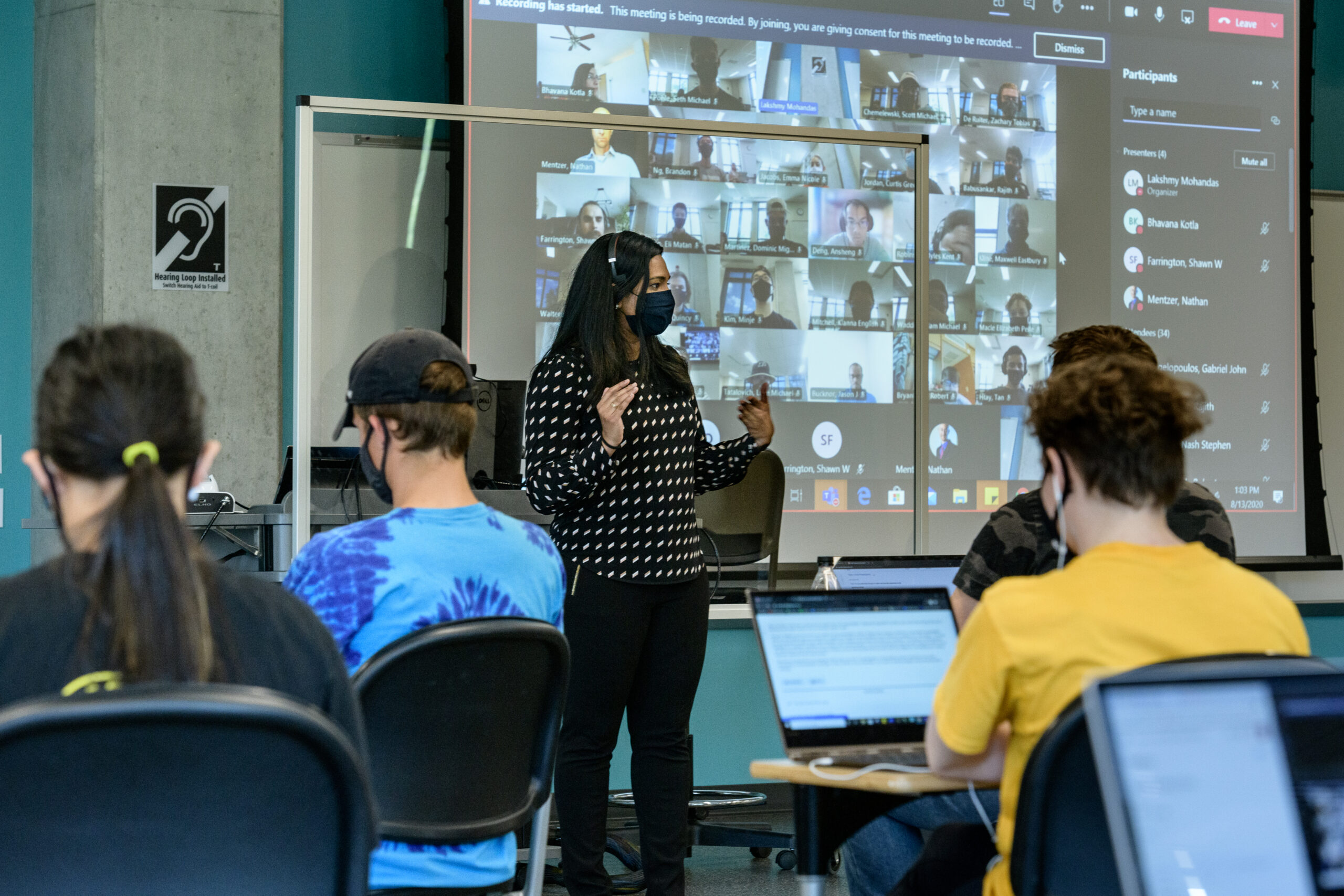COVID 19 & Higher Education Advocacy Program
The AAPD COVID-19 & Higher Education Advocacy program aims to address the education system’s deepest rooted problems in ensuring access to our higher education for students, staff and faculty with disabilities, mental illness and chronic illness, which were made worse by the COVID-19 pandemic.
About Us
The AAPD COVID-19 & Higher Education Advocacy program aims to address the education system’s deepest rooted problems in ensuring access to our higher education for students, staff and faculty with disabilities, mental illness and chronic illness, which were made worse by the COVID-19 pandemic.
We envision a world where higher education institutions adopt more inclusive and accessible policies and systems that center disabled students, faculty, and staff. Our program brings together disabled people in higher education to build communities that sustain them in future advocacy.
This program is a continuation of grassroots organizing that has repeatedly transformed the nation, with disabled students at the forefront of key activism in the independent living, disability rights, disability justice, civil rights, and many other movements. While the COVID pandemic has brought new challenges and further highlighted existing issues, the legacy of student and community activism that we aspire to honor through our organizing is decades old. We are energized by our history, by what is possible when the disability community comes together to fight for change.

AAPD has established three priorities to guide this program:
We bring together students, faculty, and staff with disabilities, fostering community to collectively advocate for accessible higher education and employment.
Serve the People
We exist to serve and support members of our community working to bring access to education by providing the resources, connections and public support needed to bring about change.
Educate the Public
We amplify stories from students, faculty, and staff with disabilities to highlight the institutional inequities of higher education and the access issues made worse by the COVID pandemic.
In 2022, The COVID-19 & Higher Education Program was established to address long-standing issues in access to education for students, faculty, and staff with disabilities which were exacerbated by the COVID-19 pandemic. The COVID-19 & Higher Education Program is made possible by the Ford Foundation.
Statement on COVID-19 Pandemic
Addressing COVID-19’s New Normal
When the pandemic began, campuses started to provide accommodations that were much needed by disabled college students, staff, and faculty. As universities returned to an in-person environment, many ended hybrid, HyFlex, or remote options. Without these accommodations, people with disabilities are losing access to their education or employment in higher education. In addition, 1 in 13 adults in the US have Long COVID. They are a new and growing generation of disabled people who seek equal access education or workplace. As of 2024, our program focuses on issues created, or made worse by the COVID-19 pandemic, which impact disabled people in higher-education communities.
Contact: Education@aapd.com
Fall 2024 COVID-19 & Higher Education Community Grants
We are excited to announce that as part of our COVID-19 & Higher Education Advocacy Program we will be providing $500-$5,000 community grants! They will be for groups doing work to address issues in higher education felt by our community, especially as it pertains to issues created or made worse due to the COVID-19 pandemic.
Do you have a big idea that you need funds to make real?
Such as:
- Leading a campaign to bring a Disability Cultural Center to your campus
- Bringing a Disabled speaker to campus
- Hosting a gathering for your Disability staff and faculty affinity group
- Host a panel of disabled students to talk about the ongoing pandemic
- Seed money for a scholarship
Applications are due May 15th, 2024 at 8:59PM PST/11:59PM EST
We will hold a virtual information session on Monday, April 22, 2024 at 5PM PST/8PM EST. ASL and CART will be provided.
Get Involved
Join our community of people with disabilities and allies connected to the COVID-19 & Higher Education Program.
